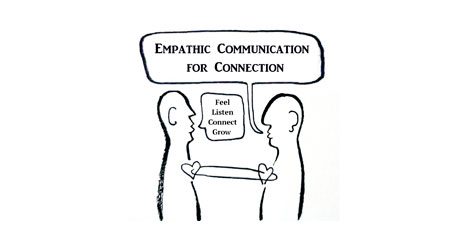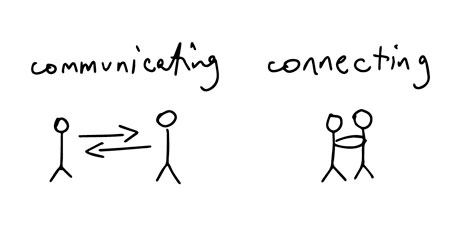How to Improve Communication in Relationships
To fuel relationships, connection in relationships is an essential part of communication. Positive communication includes stating your feelings with clarity and listening to your partner with the committed goal of understanding their perspective. Listening in this manner means you are not thinking about your response. After listening to what your partner has to say, reflecting back to them what you have heard helps clarify that you have understood what they are saying.
Keeping communication open and not withdrawing from difficult or sensitive topics is crucial. It may be easier at times to avoid each other or the topic and to not address the issue. However, a relationship does not thrive on avoiding difficult communication. Keeping honest and authentic communication is key to connection and intimacy in relationships.
Avoiding assumptions and communicating assertively help avoid unnecessary misunderstandings and conflict. Even when you feel you know your partner, remind yourself that you cannot read their mind. Asking questions from a place of openness and curiosity helps keep communication positive and circumvent irritation, confusion, or hurt.
In short, healthy Communication in Relationships requires deep intention, patience, and practice, practice, and more practice.
Communication and Connection
It helps to:
- Designate a weekly time to discuss the relationship, concerns, children and family, inner thoughts and feelings, jobs/careers and just check in to see how you and your partner are doing.
- Prepare beforehand for your weekly meeting with your partner and put some thought into what you want to address and ask.
- Have clarity of thought and communication.
- Reflect back and ask if you have understood correctly what your partner is saying on their part.
- Use “I” statements and discuss your feelings about the topic.
- Own your stuff and take responsibility for your thoughts, feelings, and actions.
- Actively listen to your partner without thinking about your response while they are still talking.
- Don’t forget to compliment the things about your partner that you appreciate.
- Pay attention to your body language. Be open, kind, compassionate, welcoming, curious and let all this reflect in your tone, expression, and stance.
- Use appropriate body language to show interest such as leaning forward, and eye contact if culturally appropriate.
- Face your partner and do not look away or on your phone, watch or computer.
- Do not stand towering over your partner as this can feel threatening. Instead, try to be at the same level as your partner.
- Do not fidget, tap your feet or otherwise indicate you are bored or disinterested. In the same vein show genuine interest and concern.
- Remember peace is more important than ‘being right’!
- Agree to disagree and make room for two differing opinions.
- Give your partner the floor to speak their mind without interrupting them. You will get your turn.
- Use a kind, compassionate tone.
- Take breaks if you need to. Address an issue only when you are ready.
- Be open to suggestions, thoughts, and feedback from your partner. In fact, invite their feedback on your communication style.
Building Communication Skills
Not everyone Communicates in Relationships the same way. Some people are great listeners, while others may be excellent at tuning in to their feelings and sharing. Some people may take time to open up or need reassurance to express themselves.
It helps to:
- Assess if you are speaking from a place of kindness and compassion, or from a place of fear, anxiety or anger. Speak only when it is the former. In case of fear, anxiety or anger, first cool down, process or be transparent about your feelings with your partner.
- Share experiences and interests, and don’t shy away from discussing opinions.
- Show you care by doing the things that are important to your partner.
- Discuss important issues such as parenting, finances, careers, etc.
- Offer comfort to your partner when they are in distress. A pat on the back, a kind look, and a loving gesture go a long way.
- Prioritize your relationship over friendships, work, and other matters. Ensure your partner knows they are a priority.
Self-Reflection and Introspection
- Assess the causes of conflict and distress for each of you.
- Assess the moments of connection and joy with your partner.
- Think about what you do when you are in pain.
- What are the topics you avoid discussing and why?
- Are you the partner you aspire to be in your relationship? What are the barriers?
What not to do
- Do not make assumptions. Ask questions instead and be open to hearing the answers.
- Do not use the silent treatment.
- Stay away from judgment, instead share your concerns.
- Remember a win-win is the only option that makes for a sustainable relationship. You do not win by defeating your partner.
- Do not bring in old fights into the present argument.
- Do not blame, shame or use communication techniques that you know are ineffective.
Consider seeking support from a trained relationship counselor or marriage counselor to navigate difficult times and learn new skills to help deepen your connection with your partner.



